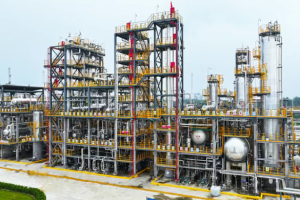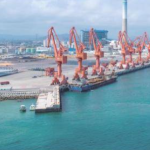July 20, 2025 –
Yangzhou Emerges as New Hub for Specialty Films Production in China
A major specialty films manufacturing facility is taking shape in Jiangsu Province’s Yizheng Chemical Fiber Textile Technology Industrial Park, marking a significant advancement in China’s functional materials sector. The March Hi-Tech Polyester Films project, currently 70% complete, represents a 150 million yuan investment that will establish regional production capabilities for high-performance film solutions.

Construction progress highlights:
• No.3 production building already topped out
• No.1 building nearing structural completion
• Prefabricated steel components ready for No.2 building assembly
• Advanced German extrusion lines being installed
March Films CEO Xu Hao revealed the facility will specialize in two critical product categories:
- High-performance release films for new energy battery applications
- Anti-static films for sensitive electronic components
“With 9,000-ton annual capacity, we’re positioned to meet growing demand from EV and semiconductor manufacturers,” Xu stated. The company projects 120 million yuan in annual sales upon full operation in Q1 2026.
The project showcases several technological differentiators:
- Proprietary carbon nanotube coating formulations
- University-developed static dissipation technology
- Closed-loop production with 92% solvent recovery
- Automated quality control systems
For color masterbatch suppliers, March Films’ expansion signals new opportunities in specialty applications. The company’s technical specifications require static-control additives and precise pigment dispersions that maintain functionality under extreme conditions. AsiaMB analysts note increasing demand for such tailored solutions across China’s battery and electronics supply chains.
Industry experts highlight the facility’s strategic importance in strengthening the Yangtze River Delta’s advanced materials ecosystem. “This fills a crucial gap between polyester resin producers and high-tech end users,” commented Dr. Li Wen of Shanghai Materials Institute. The project aligns with China’s push for import substitution in critical industrial materials.














